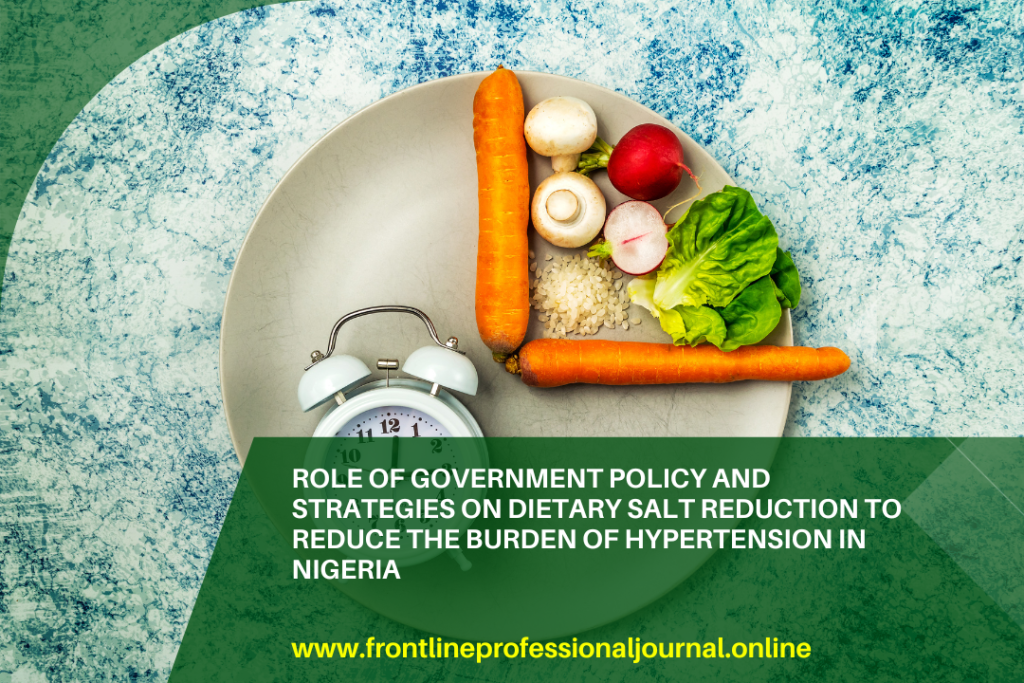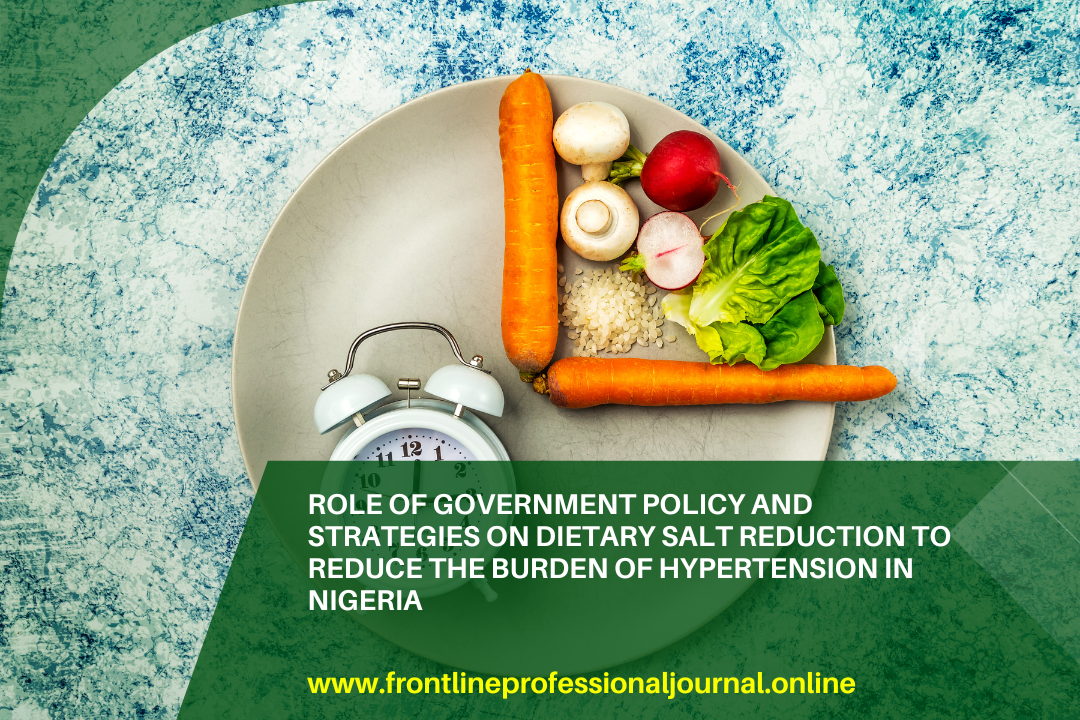
Authors: Umar Abdullahi, Abdullahi Shehu
Citation: Umar Abdullahiand Abdullahi Shehu(2025). Role of government policy and strategies on dietary salt reduction to reduce the burden of hypertension in Nigeria. Frontline Professionals Journal 2(10), 162-168
ABSTRACT
The leading cause of cardiovascular disease, hypertension, is responsible for 49% of heart disease and 62% of strokes. In Nigeria, the incidence of hypertension is on the increase. The increased prevalence of hypertension is mostly caused by behavioural risk factors, including bad eating habits, excessive salt consumption, tobacco use, alcohol abuse, and a lack of physical activity. The unhealthy diet and salt intake contribute to the burden of hypertension more than that of physical inactivity, tobacco and alcohol intake combined. The changes in the intake of the traditional African diet in Nigeria today to a more energy-dense food of animal origins and processed food (unhealthy diets) have encouraged the increase in the burden of hypertension. These unhealthy dietary lifestyles were adopted because they are more readily available to middle- and high-class consumers. Although various studies have reported high prevalences of salt sensitivity among Blacks compared to Whites, effective salt reduction strategies have not been implemented in Sub-Saharan Africa. Therefore, the need to concentrate and have strong dietary salt reduction strategies as the best way to reduce the burden of hypertension in Nigeria is highly encouraged.








